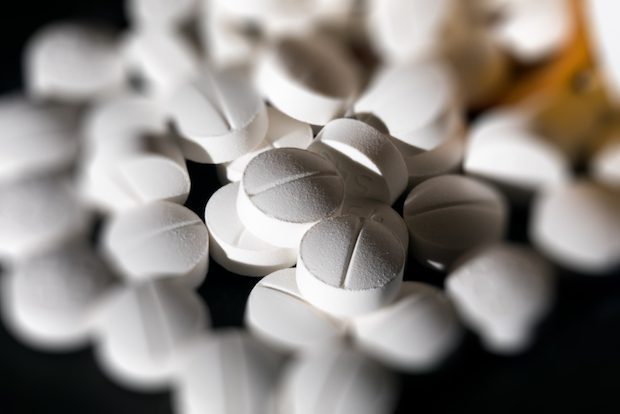‘Respectable’ Dope Pushers

Over the past decade, out-of-state drug companies shipped 20.8 million prescription painkillers to two pharmacies four blocks apart in a Southern West Virginia town with 2,900 people, according to a congressional committee investigating the opioid crisis.
The House Energy and Commerce Committee cited the massive shipments of hydrocodone and oxycodone — two powerful painkillers — to the town of Williamson, in Mingo County, amid the panel’s inquiry into the role of drug distributors in the opioid epidemic.
“These numbers are outrageous, and we will get to the bottom of how this destruction was able to be unleashed across West Virginia,” said committee Chairman Greg Walden, R-Ore., and ranking member Frank Pallone Jr., D-N.J., in a joint statement.
The panel recently sent letters to regional drug wholesalers Miami-Luken and H.D. Smith, asking why the companies increased painkiller shipments and didn’t flag suspicious drug orders from pharmacies while overdose deaths were surging across West Virginia.
The letters outline high-volume shipments to pharmacies over consecutive days and huge spikes in pain pill numbers from year to year.
Note this:
The state has the highest drug overdose death rate in the nation. More than 880 people fatally overdosed in West Virginia in 2016.
Miami-Luken is among those wholesalers and had shipped 20 million doses of oxycodone and hydrocodone to pharmacies in West Virginia between 2007 and 2012 and about 11 million wound up in Mingo County, with a population of 25,000.
The Springboro distributor also benefited from an industry campaign to get Congress to weaken drug distribution enforcement, according to a new investigation by Washington Post and 60 Minutes.
The investigation reported the pharmaceutical drug industry lobbied Congress to weaken the Drug Enforcement Administration’s ability to freeze suspicious narcotic shipments.
I strongly hope AG Jeff Sessions, or the West Virginia attorney general, has someone looking into this to see if there are any laws under which the government can charge these pharmaceutical executives. These guys wear suits and live respectable lives, but it looks like they are morally no different than street thugs who push heroin — and in fact, those street thugs depend on the suits to get people (especially poor people) hooked.
UPDATE: In my post a year or two ago about Sam Quiñones stunning book Dreamland, about the US opioid epidemic — really, you have to read this book; it’s incredible — I wrote:
[Quiñones] quotes one former Mexican heroin dealer saying that when he arrived in the US, the older manager who introduced him to the business warned him not to think about what the drug was doing to other people’s children. If you do, he said, you will think about your own children, and you won’t be able to do this job. The drug dealers distanced themselves emotionally from the consequences of their labors, focusing instead on all the good things they could provide for their families back home in Xalisco, and the way that money elevated them from social outcasts to men of status. They refused to allow the human cost to American families and communities get to them. In time, even the people back home who knew better than to think that selling dope in America was respectable work came to ignore the moral implications, because it felt good to have money.
Mexican heroin dealers had to force themselves not to think of the human toll of their business, so they could continue to do business. Same thing with drug company executives who made the decision to flood the markets with these pills.

Subscribe for as little as $5/mo to start commenting on Rod’s blog.